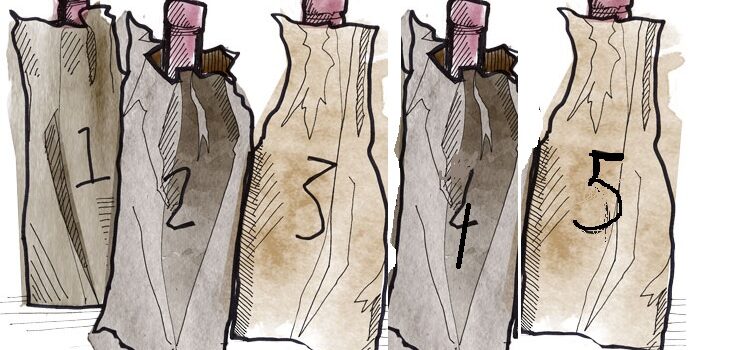First of all, why do we taste wine? To study it, to get to know it, to check if it is free of faults, to increase our pleasure, to check its ageing potential...
Professional wine tasting consists of four phases: visual, olfactory, gustatory and retro-olfactory, to assess the organoleptic profile of the wine. It is not a random or personal examination, but a very precise technique (or art?) to arrive at a consistent judgement, regardless of who is doing it.
Of course, one is not born an expert in tasting, but only after a certain period of sensory and intellectual experience, but this applies to any activity. When you study medicine, you are not yet a doctor, when you pick up a tennis racket for the first time, you are not yet a tennis player...
Let's get down to business: once we know how to taste wine, we can choose between different types of tasting to further our investigation.
HORIZONTAL
IDENTICAL (=) same vintage, same type of wine (grape variety, appellation or region)
DIFFERENT (≠) different producers
This tasting facilitates comparisons between different soils or microclimates, viticultural practices and winemaking styles, highlighting differences in the same grape variety/year.
Practical example: a horizonatal tasting of 5 bottles of Barolo DOCG 2015 from different producers.
VERTICAL
IDENTICAL (=) same vine, appellation or region and same producer!
DIFFERENT (≠) different vintages
This method evaluates a wine's ability to evolve over time by comparing different vintages (climates) to highlight differences or similarities.
BLIND TASTING
This tasting is highly appreciated both in international sommelier competitions and by Milano Wine Affair to ensure a playful and/or competitive approach, an original idea for a moment of authentic conviviality.
Usually, the bottles tasted are served with the labels covered (so that neither the producer's name, nor the grape variety, nor the vintage, nor the area of cultivation...) are visible. In this way, one tastes without being influenced, without having any information and conditioning.
Blind tasting forces one to be extremely concentrated at every stage of tasting in order to decode colours, aromas and flavours: a unique experience for beginners and wine lovers alike.
